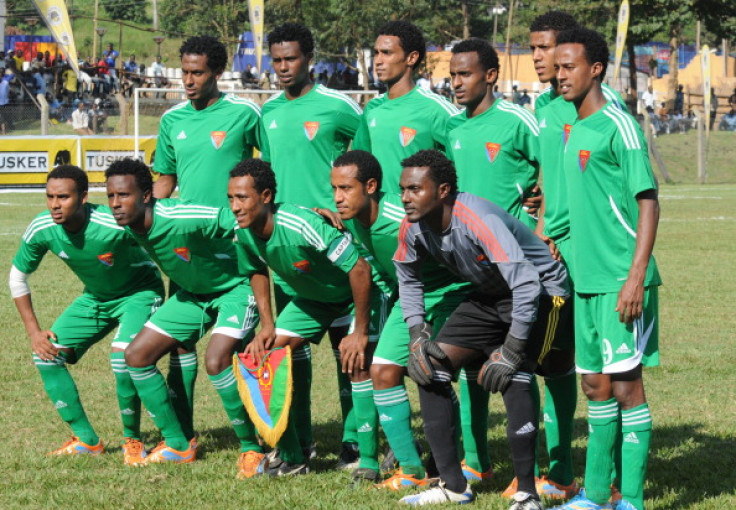Botswana: 10 Eritrean footballers seek asylum after refusing to board plane

Ten Eritrea footballers have refused to go back to their country after playing a World Cup qualifying match in Botswana, where they are now seeking asylum. The internationals were detained by the police in Francistown after they refused to board the plane that would have taken them home.
The Botswana Football Association confirmed in a statement that the 10 players were held by the police and were undergoing interrogation. It is believed that the remaining 14 squad members missed the flight and had to be driven to the capital Gaborone from Francistown.
The players refusal to leave came despite the intervention of the Eritrean ambassador in Botswana, according to The Voice Botswana. The paper quoted the country's Football Association vice president-administration, Basadi Akoonyatse, explaining that the 10 were discovered missing from their hotel rooms.
"A report was made to the police who spotted them loitering around Francistown, alleging that they were in search of a Red Cross centre where they could seek assistance for the NGO to lobby on their behalf to be accorded asylum in Botswana," she said.
The Botswana government is considering forcible repatriation of the 10 footballers. A prominent law firm in Botswana, Bayford and Associates, said it will file an application with the high court urging the government to halt any such move.
Dick Bayford, human rights lawyer and managing director at Bayford, told IBTimes UK: "We will file the application during the course of the day." He added that Botswana's minister of defence and security confirmed during a radio interview that the men would be repatriated.
"The minister said that the claims were not convincing," Bayford explained. "I think it is now common knowledge about the political and socio-economical situation in Eritrea. Freedoms are restricted, the country does not have a functional constitution and there are political prisoners. In my view it is disappointing that the Botswana government decided to adopt a harsh position and we think that the intervention of the high court is necessary."
Sweden-based Meron Estefanos, director of Eritrean Initiative on Refugee Rights, who spoke with the relatives of the footballers, told IBTimes UK: "Family members are worried." She also explained that this is not the first time Eritrean athletes have refused to return home after visiting another country.
In 2013, Uganda granted asylum to 15 Eritrean football players and their doctor after they refused to go back to their country arguing that life condition in Eritrea were "not good". The Ugandan Commissioner for Refugees granted asylum as it found that the group's claims were valid.
In 2010, 13 footballers unsuccessfully sought asylum in Tanzania following a tournament there. After their request failed, some of the players went to Houston, Texas, under a refugee resettlement programme.
"This has been happening for many years now," Estefanos said. "We are talking about football players that have to do military training and different things. Eritreans use any opportunity to get out of the country. They want to be safe and this shows that there is dissatisfaction with the regime".
Eritrea has one of the poorest human rights records and the country has been criticised by NGOs and the UN for alleged human rights abuses including extrajudicial executions, arbitrary detention, torture, persecution of ethnic groups and repression of freedom of expression and association.
In June, the UN released a report following a 12-month investigation accusing the government of the east African country of committing crimes against humanity. Among other things, investigators warned that there was widespread torture, with methods included electric shock, near drowning, sexual abuse and forcing people to stare at the burning sun for long periods of time.
Large numbers of Eritreans try to flee the country every month. The UN warned that the government deems people who try to leave traitors and has adopted a shoot-to-kill policy to stop them.
© Copyright IBTimes 2024. All rights reserved.






